第64章 CHAPTER XV(5)
Make no mistake, my brethren, they are as easily seen as are the apples on a tree. The fruits of the spirit are as discernible to any one honest enough and fearless enough to look; and the first and supreme of all is that which we have been considering this morning. The question for you and for me, my brethren, is simply this: Are our lives full of the grace of love? Do not shrink from the question. Do not deceive yourselves with any substitutes;there are many offering zeal, the gift of prayer or of speech, yea, the gift of faith itself. None of these will atone for the lack of love. Let each ask himself, Am I a loving man?"With quiet persistence he pursued them into all their relations in life--husbands and wives, fathers and sons, neighbor and neighbor.
He would not let them escape. Relentlessly he forced them to review their habits of speech and action, their attitude toward each other as church members, and their attitude toward "those without." Behind all refuges and through all subterfuges he made his message follow them, searching their deepest hearts. And then, with his face illumined as with divine fire, he made his final appeal, while he reminded them of the Infinite love that had stooped to save, and that had wrought itself out in the agonies of the cross. And while he spoke his last words, all over the church the women were weeping, and strong men were sitting trembling and pale.
After a short prayer, the professor sat down. Then the minister rose, and for some little time stood facing his people in silence, the gleam in his eyes showing that his fervent Highland nature was on fire.
"My people," he began, and his magnificent voice pealed forth like a solemn bell, "this is the message of the Lord. Let none dare refuse to hear. It is a message to your minister, it is a message to you. You are anxious for 'the marks.' Search you for this mark." He paused while the people sat looking at him in fixed and breathless silence. Then, suddenly, he broke forth into a loud cry: "Where are your children at this solemn time of privilege?
Fathers, where are your sons? Why were they not with you at the Table? Are you men of love? Are you men of love, or by lack of love are you shutting the door of the Kingdom against your sons with their fightings and their quarrelings?" Then, raising his hands high, he lifted his voice in a kind of wailing chant: "Woe unto you! Woe unto you! Your house is left unto you desolate, and the voice of love is crying over you. Ye would not! Ye would not!
O, Lamb of God, have mercy upon us! O, Christ, with the pierced hands, save us!" Again he paused, looking upward, while the people waited with uplifted white faces.
"Behold," he cried, in a soul-thrilling voice, "I see heaven open, and Jesus standing at the right hand of God, and I hear a voice, 'Turn ye, turn ye. Why will ye die?' Lord Jesus, they will not turn." Again he paused. "Listen. Depart from me, ye cursed, into everlasting fire. Depart ye! Nay, Lord Jesus! not so! Have mercy upon us!" His voice broke in its passionate cry. The effect was overwhelming. The people swayed as trees before a mighty wind, and a voice cried aloud from the congregation: "God be merciful to me, a sinner!"It was Macdonald Dubh. At that loud cry, women began to sob, and some of the people rose from their seats.
"Be still," commanded the minister. "Rend your hearts and not your garments. Let us pray." And as he prayed, the cries and sobs subsided and a great calm fell upon all. After prayer, the minister, instead of giving out a closing psalm, solemnly charged the people to go to their homes and to consider that the Lord had come very near them, and adjured them not to grieve the Holy Spirit of God. Then he dismissed them with the benediction.
The people went out of the church, subdued and astonished, speaking, if at all, in low tones of what they had seen and heard.
Immediately after pronouncing the benediction, the minister came down to find Macdonald Dubh, but he was nowhere to be seen. Toward evening Mrs. Murray rode over to his house, but found that he had not returned from the morning service.
"He will be at his brother's," said Kirsty, "and Ranald will drive over for him."Immediately Ranald hitched up Lisette and drove over to his uncle's, but as he was returning he sent in word to the manse, his face being not yet presentable, that his father was nowhere to be found. It was Macdonald Bhain that found him at last in the woods, prone upon his face, and in an agony.
"Hugh, man," he cried, "what ails you?" But there were only low groans for answer.
"Rise up, man, rise up and come away."
Then from the prostrate figure he caught the words, "Depart from me! Depart from me! That is the word of the Lord.""That is not the word," said Macdonald Bhain, "for any living man, but for the dead. But come, rise, man; the neighbors will be here in a meenute." At that Black Hugh rose.